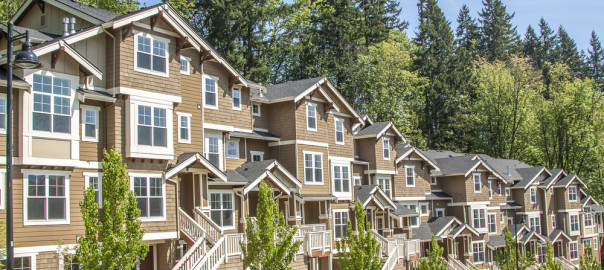Understanding The Quirks Associated With Investing In Condos
By JD Esajian on August 7, 2015
Thinking of buying or investing in a condo? Read this first!
Buying, owning, selling, and investing in condos can be quirky. Sometimes these quirks will be enough to make even the most patient person crazy. That said, what are these glitches that impact condos, and how do they stack up to other types of properties? What’s behind them? How can real estate investors minimize the madness and invest in these units safely? What other options are out there?
Condos Can Be Great Investments
While condos can be a nightmare, they can also have their advantages. Obviously, nobody would buy them if they didn’t. So what makes condos attractive, compared to some single-family homes or small multifamily properties? The benefits of buying condos can include:
- Lower average cost per unit than single-family homes
- Easier property management
- Covenants and regulations that preserve property values
- Low insurance costs
- Attractive to foreign investors and retirees
- The potential for reverse condo conversions in tough times (if you own the building)
However, real estate workers and those that have owned condos before can be all too familiar with some of the frequent pains that can come with these properties.
The Common Complaints About Condos
- High condo fees
- Having neighbors
- Limited home improvement and value-add options
- Challenges in obtaining mortgage financing
For every perk of buying a condo, there may be a subsequent problem. It really depends on what you are looking for, and what priorities you prefer. Perhaps you are a real people person and love close neighbors. Those that don’t get along well with others might hate condo living. Monthly or quarterly condo association fees can add on to holding costs and household bills. Owning a condo can often coincide with insurance for the exterior of the building, maintenance of common areas, cable TV, a community pool or fitness facilities, and more. Selling condos can be a real pain if the building doesn’t meet the common criteria of banks and mortgage lenders. That can result in lengthy marketing times, and less appreciation. However, with all this in mind, these properties may actually be more attractive and sell fast in popular retirement destinations. So make sure you know what you want, and don’t, and look at the whole picture before choosing a property type. Remember that condos aren’t only towering skyscrapers. They can come in the form of detached homes, townhouses and boutique low-rise buildings.
When Condo Quirks Can Get Crazy
There are some issues with condos that many aren’t familiar with. These can quickly become major stress points if you are not ready for them. In fact, sometimes they can turn a dream home purchase or highly profitable real estate purchase into a bankrupting nightmare.
Special assessments can be levied by the condo board at virtually anytime. This can be to fix up the building after a major storm, to repair aging, or even to add new improvements and features. This can be to the tune of tens of thousands of dollars. If you don’t pay, you can fall into foreclosure and lose your property. Large special assessments can make it very hard to sell condos too.
If too many condo owners in a given community don’t pay their regular dues or special assessments, the project can fall into bankruptcy. Regular maintenance may also be deferred. The pool may be left to go green, the grass uncut, and more. That can strip owners of their perks, and make it hard to sell.
Then there are the notorious condo rules. Some aren’t that bad, but some are horribly restrictive. They can be changed by a vote of the board at a moment’s notice. The most damaging can be rules on approvals of new buyers, as well as limitations on renting units out. Some condos ban leasing for a year or two after purchase. That can be devastating for investors anticipating an income stream to be created.
Minimizing the Condo Risk
Many problems can be negated or avoided with some better due diligence. Make sure to review the ‘condo docs,’ condominium finances, rules, and do your homework on the board members before buying a condo. You might even investigate the reputation of the legal firm they use. Is this an ethical and reputable law firm? Or one which has a notorious reputation for digging up strife for cheap money?
If buying condo units that leave too much out of your control is not your idea of investing, there are other options. Real estate investors could look into buying single-family rentals or small duplexes. Or they can acquire multifamily apartment buildings, make their own rules, and can even convert them into condos.